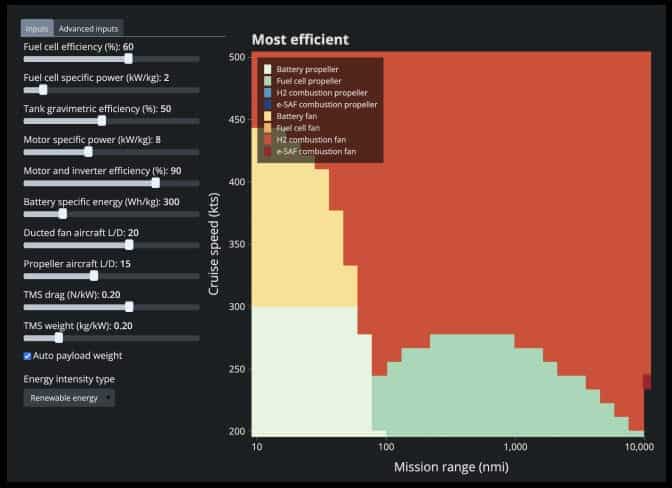
Joaquim Martins Develops Interactive Tool to Answer Questions Related to Carbon-Neutral Aircraft Efficiency
New research from Professor Martins and his team dives into sustainable aviation

New research from Professor Martins and his team dives into sustainable aviation

A recent article from the College of Engineering showcases Professor Joaquim Martins and his team’s research on which carbon-neutral aircraft uses the least energy for a given range and speed, complete with an interactive tool to help answer questions related to energy efficiency. The new tool incorporates currently available or soon-to-be available technologies and allows users to adjust sliders to discover how different parameters change key properties.
Professor Martins’ research highlights how battery-powered aircraft motors would be the most efficient means for the future of sustainable aviation if it weren’t for the additional weight. With more weight, the aircraft requires more lift which then creates a demand for more drag and thrust which then requires more battery power, then again adding more weight to the aircraft.
With this tool the team has developed, users are able to see this and to game out four sustainable propulsion systems scenarios to pinpoint the least energy-hungry option. The systems included in the tool are: e-SAF (synthetic jet fuel produced with carbon captured from the air), battery-electric, hydrogen fuel cell and hydrogen combustion.
This interactive tool answers questions related to weight, storage and fuel cell efficiency while also addressing properties of the propeller, motor, fan and more.
Read more from Michigan Engineering here.